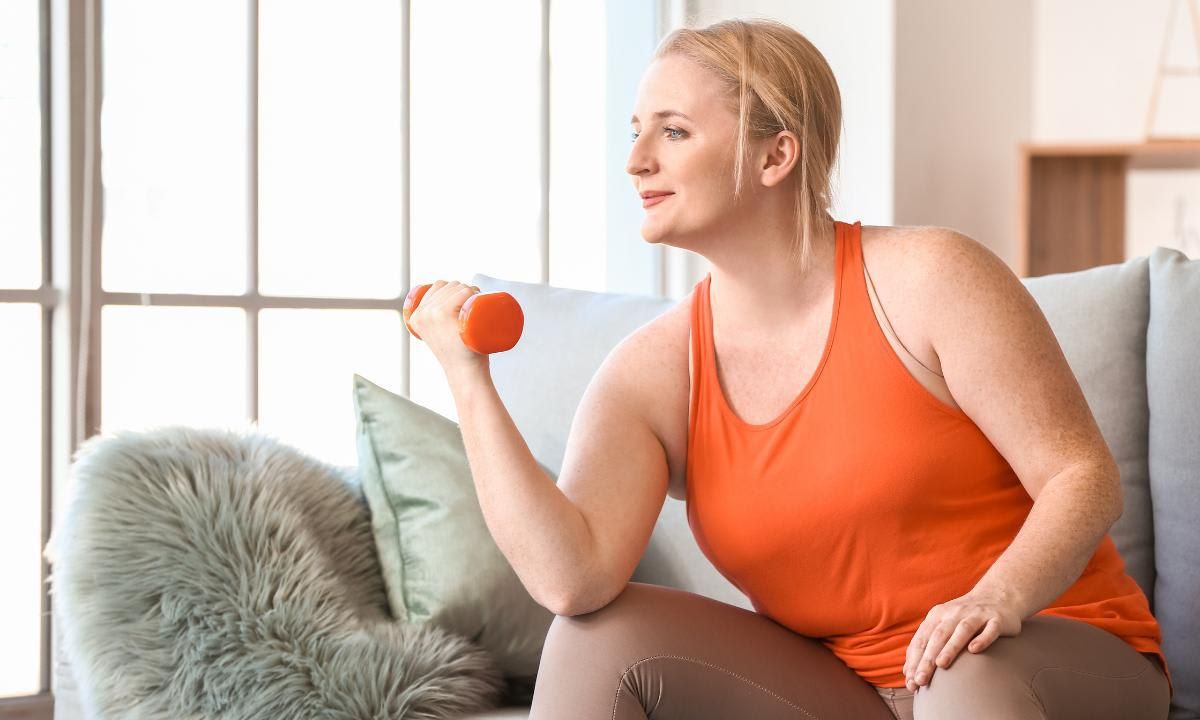Not long ago, a colleague of mine posed a question: why is there so much emphasis now on women needing to train for strength? The experts have a clear answer: strength training enhances the quality of life at all levels, and for women, particularly when menopause arrives. That’s why the misconceptions regarding this type of training are gradually fading away. With the assistance of personal trainer and co-founder of KMT Studio, Carlos Bustos, we will summarize the numerous benefits of incorporating resistance training into your workout routine.
Lifting weights doesn’t prevent achieving a feminine body
As Carlos Bustos explains, “We must understand that men and women have different genetics and, consequently, different bodies. This is due to the different hormone levels in each sex. Men have much more testosterone in their bloodstream, a hormone involved in muscle development, bone density, and the ability to generate strength. Men struggle to develop and maintain a high percentage of muscle mass with great consistency and effort; for women, reaching that ‘masculinized’ physique is almost impossible.”
Crucial during menopause
In the experts‘ opinion, while strength training is always essential to maintain a healthy, balanced, and functional body, it becomes almost a ’necessity‘ when menopause arrives. “Hormone levels drop significantly during perimenopause,” explains Carlos Bustos. “This means that vitality decreases, and the risk of bone calcification increases. Without intervention, muscle mass will also be lost, resulting in a decreased metabolism (fat gain happens more rapidly), an increased risk of bone fractures, loss of self-esteem, and empowerment...” he adds.
Positive impact on mental health
“Mood and confidence improve immediately,” says Carlos Bustos. “When one commits to oneself and one’s health and takes direct action, self-love improves instantly. Furthermore, training leads to an improvement in habits and one’s relationship with oneself and one’s surroundings. With effort, one can achieve set goals, and this builds character, enhances self-esteem, and leads the person to a better version of themselves. It’s very powerful,” says the expert, based on his experience.
What are the basic exercises?
Considering these benefits, it’s time to get to work. You might wonder what the action plan should be. If you’re a beginner, you can start by training with your body weight. “Exercises that rely on our own body weight are ideal for developing a proper foundation of strength, muscular control, coordination, and balance. Squats, push-ups, lunges, pull-ups, and planks are compound exercises that work a large amount of musculature and are the basics of strength training. Once you’ve adapted and no longer feel the stimulus, you should gradually incorporate weights. The idea is to take the body out of its comfort zone to induce new adaptations in the body,” comments the expert from KMT Studio.
How to incorporate it into your routine
In the expert’s opinion, it’s ideal to train with weights intensely for two days a week. “It’s recommended to do cardio for another 2 days to keep the heart happy and accelerate calorie burning. This exercise should be moderate. To finish, briskly walk at least 10,000 steps on 2 days a week, a gentle and achievable exercise with many benefits for the mind and muscles!” concludes Carlos Bustos, trainer and co-founder of KMT Studio.
What should your diet be?
This is another factor that undoubtedly concerns many women: choosing a diet that complements our training. “In terms of health, the ideal is to eat as our grandparents did. That is: homemade, fresh, and seasonal. We should avoid packaged products with colorful plastics because they generally are highly processed and loaded with fillers that provide nothing. Furthermore, the distribution of the three macronutrients (proteins, carbohydrates, and fats) should be correct. If you choose each source wisely and ensure that each meal has a representation of each macro and many colors, you will ensure that you are receiving an adequate amount of quality nutrients in an ‘intuitive’ manner. For a more detailed approach, consult a nutritionist,” comments the expert.
,type=downsize)
